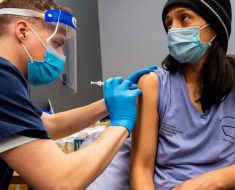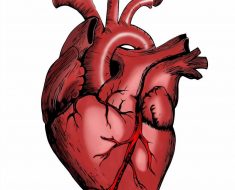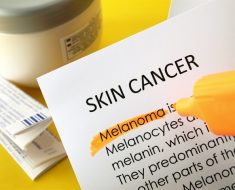
People with diabetes tend to have higher levels of low-density lipoprotein cholesterol, or “bad cholesterol.”
This can lead to the excessive buildup of fat in the arteries.
For this reason, doctors may recommend that these people have regular blood cholesterol tests.
Current guidelines recommend that people do not eat or drink anything but water before a blood test, in order to not skew its results.
However, increasingly, studies are suggesting that this step may not be necessary, and that it may actually cause harm in some cases.
New research led by specialists at Michigan State University in East Lansing reports that fasting before a blood cholesterol test can give rise to low blood sugar, or hypoglycemia, in individuals with diabetes who take insulin or sulfonylurea (a drug to manage type 2 diabetes).
These findings, which now appear in the International Journal of Endocrinology, may influence doctors’ advice to people with diabetes.

‘Feed not FEEHD’
The team worked with 525 people with diabetes who attended one of two endocrinology clinics in Michigan. The scientists asked them to fill in a two-page survey, and they only considered those that featured all the relevant data.
Following an analysis of this information, the researchers found that people with diabetes were more likely to experience fasting-evoked en route hypoglycemia (FEEHD) if they had fasted before having a blood test.

In FEEHD, blood sugar levels become abnormally low — under 70 milligrams per deciliter — which can cause faintness, confusion, and dizziness. This can lead to life-threatening accidents if the person in question is driving (“en route”) to the clinic where the blood test will take place.
“Hypoglycemia is an overlooked problem that we see from time-to-time in patients with diabetes who show up for lab tests after skipping breakfast,” explains study author Saleh Aldasouqi.
“Patients continue taking their diabetes medication but don’t eat anything, resulting in low blood sugar levels that cause them to have a hypoglycemic event while driving to or from the lab, putting themselves and others at risk.”
Saleh Aldasouqi
“Our new motto is ‘Feed not FEEHD,'” he goes on, “to remind patients of this danger and get them to eat.”

A need to update older guidelines
Aldasouqi also points out that specialists currently recognize that eating before undergoing a blood cholesterol test is unlikely to affect relevant measurements. Therefore, having a meal before going in for a test may actually be better than fasting and potentially losing consciousness on the way to the laboratory.
He adds that the idea of fasting before a blood test comes from antiquated sets of guidelines from the 1970s, which specialists in Canada and most European countries no longer use.
For this reason, he says that United States-based specialists may want to consider revising their own guidelines to better fit the needs of their patients.
According to the study’s findings, only 35 percent of participants had received advice about how to prevent a FEEHD event before going in for a blood cholesterol test.
“We encourage patients who receive orders for a lab test,” explains Aldasouqi, “to ask their doctor if fasting is really necessary, and if so, how they should handle their diabetes medications during the fasting period to account for the changes in their blood sugar levels.”
“FEEHD is overlooked in clinical practice, and we aim to bring this problem to light and further educate doctors and patients about the consequences of fasting while on diabetes medications,” he adds.
Source: Read Full Article





